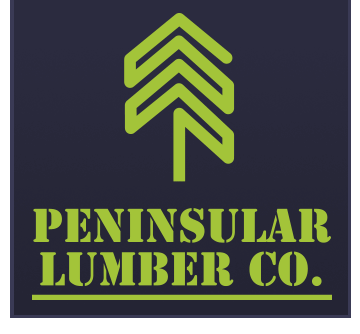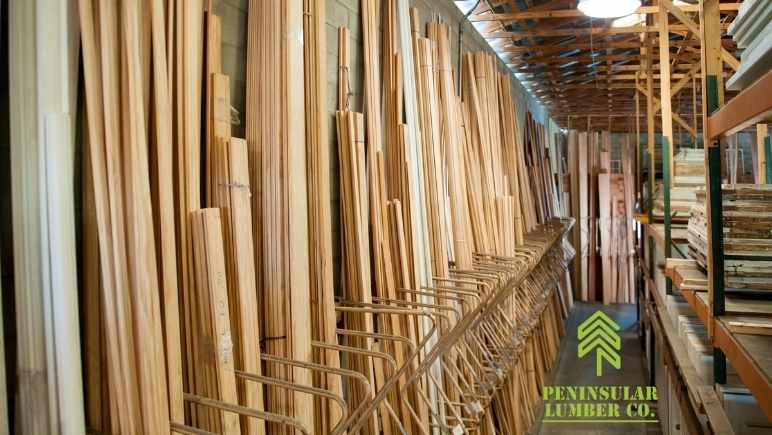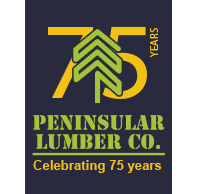What types of lumber do you need?
Since the early days of stacking up logs to create log cabins or treehouses or to more modern creations like ranches and bungalows, lumber has always been a popular choice for home building and DIY projects. There are so many types of lumber to choose from.
You can use lumber for making wood products to home improvement. It has many uses and applications. However, there are many kinds of wood with different traits and characteristics and knowing the difference between the types of lumber can vastly improve any woodworking project.
Here is a starting point for anyone trying to find what wood is best for their project.
Basic Types of Lumber: Hardwood and Softwood
In the United States, lumber is divided into two main categories: hardwood and softwood lumber. Hardwood types of lumber include Red Maple, River Birch, and Torchwood. Hardwood is characterized by its high wood density, distinguished by its deeper hue, and it is far more expensive than other forms of wood.
On the other side of the coin, there is softwood. Trees that fall under the category of softwood are the Longleaf Pine, Sand Pine, and Spruce Pine. They are usually lighter in color and have lesser densities.
For each project you have, your ideal type of wood can greatly vary. Knowing the differences between softwood and hardwood will help ease you into the proper variety that you can select from.
Features of Hardwood
Strength, durability, and longevity are what you can expect from most hardwoods to consistently feature and provide. Because of their rigidity and toughness, hardwoods are generally best used for flooring, decking, and paneling or for any project that will need to withstand extra weight.
It is also common for hardwood to be the framework for a multitude of furniture sets. In addition, they are more resilient to the wear and tear of daily use, and they are much easier to restore if they get scratched and scraped.
Hardwood is often the denser type of wood compared to most softwoods. Its density gives it a higher resistance to termite attacks and makes it more resilient to fire. It also enjoys a longer lifespan since its density makes it much harder to scrape and cut into.
Unfortunately, what makes these types of lumber a fantastic choice for your housing needs can also make it difficult for small-scale woodworking projects. Since it is a sturdier and more condensed piece of lumber, it is not generally easy to work with. However, if you can put in the extra time and effort to handle the hardwood, you will see the benefits in the decades to come.
Features of Softwood
If you are looking for a cheaper alternative for your woodworking needs, then softwood should be up your alley. Do not let the name fool you; things made of softwoods are still rigid wood products that can act in the stead of hardwood. These types of lumber are often less dense than hardwood, but there are varieties of softwood such as the Yellow Pine and the Douglas Fir that are harder than some hardwoods.
While softwoods may not outlast most hardwoods, they share an equally large and important role in any woodworking project. Unfortunately, since softwoods are less dense, they are more prone to being destroyed by insect attacks and fires. However, you can look into high quality pressure treated lumber pieces to help counteract these weaknesses.
Pressure treated lumber is wood that has been infused with chemicals and additives to help make your lumber more resistant to damage. While the overall strength of the wood will be relatively the same, insects, fire, mold, fungi, and moisture will be better repelled.
What softwoods lack in density, they make up for in sheer versatility. It is much easier to craft your softwoods into more intricately designed doors, windows, fittings, and fixtures. The softer nature of the lumber also gives way to easier nailing, sawing, and general handling. The flexibility of softwoods also gives it an edge when creating trimmings for your wood products and walls.
Hire a Lumber Expert to Identify the Right Types of Lumber for Your Projects
Knowing the different types of lumber and the best uses for them is important in taking your first step into projects like home improvement. Picking between softwood and hardwood may seem as simple as choosing either balsa wood or white oak. However, the world of lumber goes as deep as the roots of an oak tree.
More specific attributes such as wood density, lumber grades, wood grains, red or white oak, and grain patterns, textures, and color changes are difficult to get into without professional assistance. If you want an expert’s touch, then call Peninsular Lumber Co. Call us at 813-875-8805 for any of your lumber needs.



